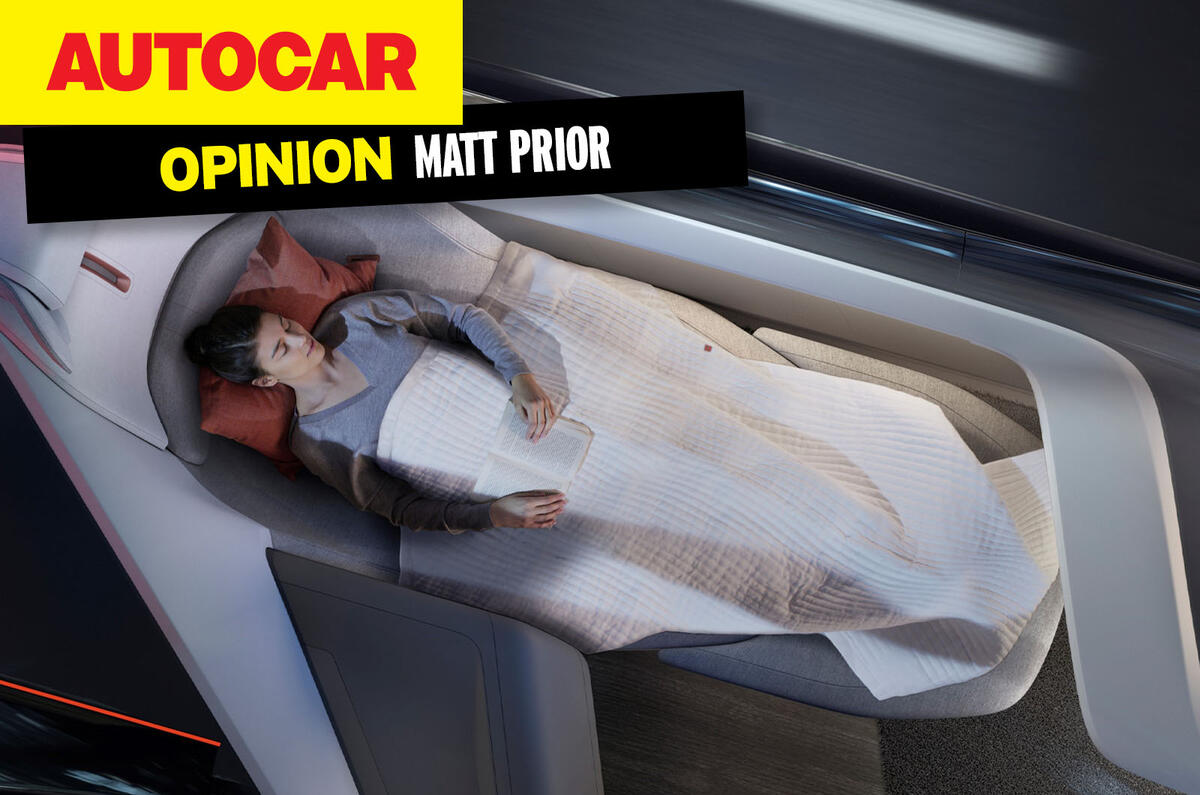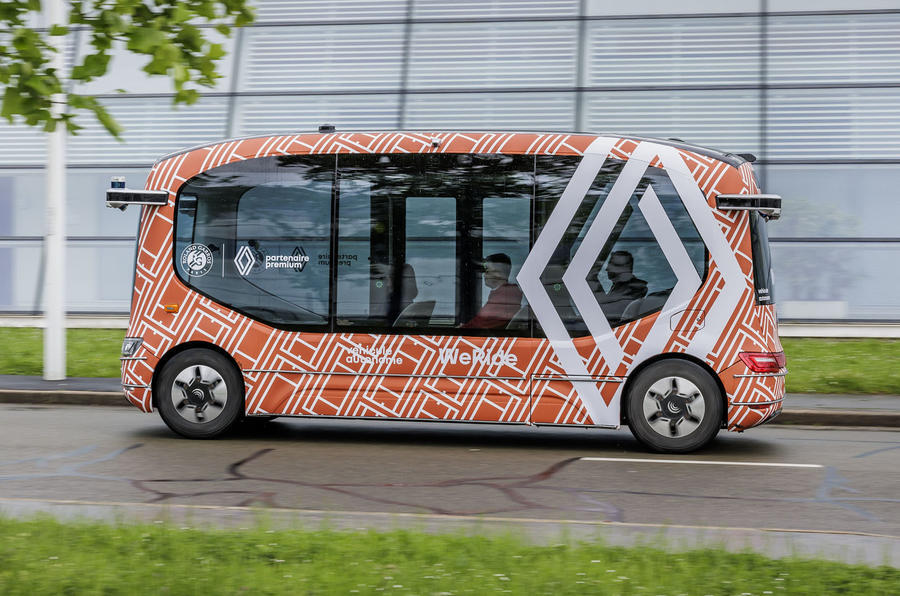In principle, I like the idea of an autonomous car. Not for when I get into a sports car or classic car or climb onto a motorbike and want to enjoy driving and riding, which, amazingly, even on today’s roads, are still two of my hobbies.
But for when I’m very old and my neck is too stiff to look over my shoulder and there’s still no local bus service, imagine how handy a self-driving car could be for taking me to queue up at the doctor’s. Or for when I’m going to the office or home from the pub, or whenever I’m on a deadline and the M25 is calling, wouldn’t a self-driving car be helpful? Seat back, screen on and let everything else happen. It’s a wonder that Netflix isn’t developing them.
Alas, there are problems. Last week, Renault said developing its cars beyond the current level-two phase of driving assistance systems is “unlikely for the time being” because of the costs of technology, regulations and customer expectation around taking the tech further. Renault talks of a “significant technological complexity gap” between where we are now and where we would need to be for a car to operate “in complex environments” and with – and here’s an important phrase – “limited driver supervision”.
‘Limited’ is in itself a roadblock to adoption of these systems, because if they need any kind of driver supervision, there’s an end to how useful they are – and how much people are prepared to pay for them. If you still need to have your eyes on the road, you may as well have your hands on the controls in some way too if you’re the one going to court after a crash.
No, the holy grail, which seems to be an even further technological leap away, needs to be both hands-off and eyes-off, with the car’s maker accepting all responsibility for anything that goes wrong in the meantime. Because, as Volvo once told me, the handover from the car back to the driver is something that can take “minutes, not seconds”. And an autonomous car that might suddenly want help negotiating a corner on which it has suddenly discovered a horse walking one direction and a family cycling the other isn’t really autonomous at all.









Join the debate
Add your comment
At any moment there could be an AI breakthrough that will make autonomous cars viable. If and when that happens, the impact will be enormous. Do you think Uber will keep paying human drivers if they don't have to? Plus, the kind of breakthrough that will enable true self-driving will also make humanoid robots viable, because the spatial awareness and navigation is so similar. Make no mistake, the 2020s and 2030s will be the decades of disruption. The internal combustion engine, already obsolete in 2024, is going to look like a museum exhibit before long.
The fact that Renault stopped developing autonomous cars further means the managers understood the capability of the company. Let Japanes companied tackle the problem and they will develop. They will be slower but much safer.
Japanese
Hi Pietro - i don't think it is that nobody wants the technology, it is that it can't be made to work yet Not at the level required to be a) useful and b) legally acceptable.
And like they say, if the computers went down nobody could do therejob manually, some can't even count without a computer, you know? Basic maths or write a letter with paper and a Biro, why would you want travel in a car overnight? When you can fly wherever.